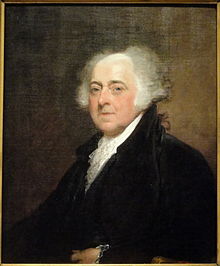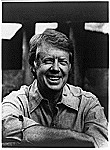Posted on May 31,
2020
The Lowdown On Logan
A good law, used badly
by
Daniel
Clark
Even before its role in the baseless persecution of
National Security Advisor Michael Flynn, the Logan Act had been unpopular among
legal scholars. The prevailing wisdom is
that it is at best useless, and at worst a violation of the First
Amendment. The law itself is neither,
but is only perceived in these ways because of its serial misapplication.
The Logan Act, signed by President John Adams in 1799,
made it illegal for a U.S. citizen who lacks the authority of the United States
to interact with a foreign government for the purpose of altering that
government's behavior toward the United States, or undermining American foreign
policy. To threaten Flynn with
prosecution under this law for his conversations with the Russian ambassador
was absurd on its face. These
discussions took place during the presidential transition period. Flynn was a leading member of President-elect
Trump's foreign policy team, not some renegade embarking on a foreign policy of
his own.
 It's
unthinkable that Flynn could possibly have been convicted, but he could not
afford to defend himself against federal prosecutors with unlimited resources. His
confession to lying to the FBI, made under duress, could not have been material
anyway, because there was no underlying crime.
The remedy for that kind of prosecutorial abuse is to punish those
responsible, not to repeal the law they misrepresented in the process.
It's
unthinkable that Flynn could possibly have been convicted, but he could not
afford to defend himself against federal prosecutors with unlimited resources. His
confession to lying to the FBI, made under duress, could not have been material
anyway, because there was no underlying crime.
The remedy for that kind of prosecutorial abuse is to punish those
responsible, not to repeal the law they misrepresented in the process.
Contrary to its almost universal condemnation, the
Logan Act is a perfectly sensible law.
We would recognize that if it were enforced when, and only when, it
ought to be. For those who need to see an
example of what the act was designed to prevent, it's been standing right in
front of us for 30 years, and its name is Jimmy Carter.
In 1990, President George H.W. Bush was lining up
diplomatic support for Operation Desert Storm, when Carter wrote letters to the
heads of state of the other nations in the UN Security Council, as well as
several Arab nations, pleading with them to oppose Bush's efforts. The ex-president no longer held any political
office, and his actions were certainly not endorsed by the sitting administration. Yet he deliberately set out to counteract
American foreign policy by influencing the behavior of other nations toward the
United States. Not only should he have
been prosecuted under the Logan Act, but it would have been an open and shut
case.
 When
Carter decided to meet with North Korean dictator Kim Il Sung in 1994,
President Clinton reluctantly approved the trip. What had not been authorized was for him to
negotiate a pseudo-treaty, like the Agreed
Framework Between the United States of America and the Democratic People's
Republic of Korea, which Carter produced in defiance of Clinton's stated
policy. This agreement relaxed economic
sanctions against the Communist regime, whereas the Clinton administration's
position had been that sanctions needed to be strengthened in order to deter the
production of nuclear weapons. Because
Kim had already agreed to it, Clinton felt pressured to accept the agreement,
which was all according to Carter's plan.
Mister Humility and Integrity had again set out to supplant the current
president's policy with his own, except that this time, he succeeded.
When
Carter decided to meet with North Korean dictator Kim Il Sung in 1994,
President Clinton reluctantly approved the trip. What had not been authorized was for him to
negotiate a pseudo-treaty, like the Agreed
Framework Between the United States of America and the Democratic People's
Republic of Korea, which Carter produced in defiance of Clinton's stated
policy. This agreement relaxed economic
sanctions against the Communist regime, whereas the Clinton administration's
position had been that sanctions needed to be strengthened in order to deter the
production of nuclear weapons. Because
Kim had already agreed to it, Clinton felt pressured to accept the agreement,
which was all according to Carter's plan.
Mister Humility and Integrity had again set out to supplant the current
president's policy with his own, except that this time, he succeeded.
Carter butted heads with Secretary of State
Condoleezza Rice in 2008, over his meeting with the leaders of Hamas who
controlled the Palestinian Authority. Simply
by making the trip, he knowingly undercut George W. Bush's policy of
diplomatically isolating the terrorist organization. According to Rice, Carter had been told in no
uncertain terms not to go through with the meeting. Carter denied it, for whatever that's
worth. It hardly matters, because even
if he wasn't told, he was perfectly aware that he was confounding American
foreign policy, yet again.
None of these is a free speech issue. In every case, former president Carter took
concrete actions that unquestionably violated the Logan Act. The fact that he was publicly criticized for
doing exactly that in the first instance makes it impossible for him to plead
ignorance in the other two. It's not the
fault of the Logan Act that he was never prosecuted. By all rights, he should have been.
A former president would never have been imprisoned
for violating the Logan Act, but he could have been prosecuted, convicted and
fined. In addition to deterring him from
repeating the offense, that would have sent the message to the rest of the
world that Jimmy Carter absolutely does not speak for the United States of
America. That alone justifies the law's existence.
The Shinbone: The
Frontier of the Free Press